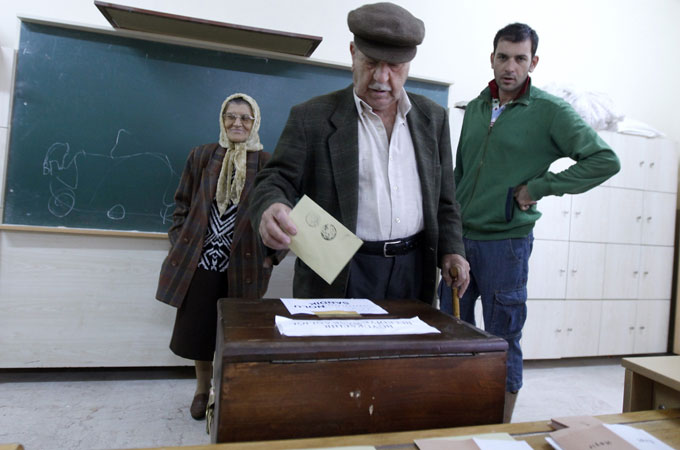karachi123
Politcal Worker (100+ posts)

Turkey holds parliamentary elections on June 12, 2011, with prime minister Recep Tayyip Erdogans Justice and Development Party (AKP), in power since 2002, seeking a third straight victory at the ballot box.
Turkey is governed by a parliamentary system based on the single-chamber Grand National Assembly to which members are elected to serve four-year terms. The assembly is made up of 550 seats, with seats distributed to electoral districts according to population.
Istanbul, which is divided into three electoral districts, receives 85 seats, while Ankara, the capital, gets a further 31. Following recent adjustments by Turkeys Supreme Election Board, some provinces in less populated areas of the country are now represented by a single seat.
Voters therefore express a preference for a party, rather than for individual candidates. However parties name lists of candidates, in order of preference, in each electoral district, so voters will have an idea of who will likely be their representatives, depending on the share of votes each party gains.
Istanbul, which is divided into three electoral districts, receives 85 seats, while Ankara, the capital, gets a further 31. Following recent adjustments by Turkeys Supreme Election Board, some provinces in less populated areas of the country are now represented by a single seat.
Voters therefore express a preference for a party, rather than for individual candidates. However parties name lists of candidates, in order of preference, in each electoral district, so voters will have an idea of who will likely be their representatives, depending on the share of votes each party gains.
Those at the top of the list in areas where their party is expected to win significant numbers of votes are therefore virtually assured their place in parliament even before the campaign has started. By contrast, those at the bottom of the list in districts considered unwinnable have little chance of getting elected.
A further obstacle for smaller parties is that a party must achieve at least a 10 per cent share of the national vote to gain any seats in parliament. This traditionally means that only a handful of campaigning parties - 23 in the current election - will gain any seats at all.
However, in 2007 the Kurdish Democratic Society Party (DTP) circumvented the 10 per cent rule by fielding independent candidates, who then aligned as a parliamentary bloc once elected a strategy which enabled the party to win 26 seats.
The DTP was banned by Turkeys Constitutional Court in 2009, but its successor, the Peace and Democracy Party (BDP), intends to use the same strategy in 2011.
With an electorate of more than 50 million, turnout in Turkey is usually high. Almost 85 percent of eligible voters participated in the last elections in 2007.
The DTP was banned by Turkeys Constitutional Court in 2009, but its successor, the Peace and Democracy Party (BDP), intends to use the same strategy in 2011.
With an electorate of more than 50 million, turnout in Turkey is usually high. Almost 85 percent of eligible voters participated in the last elections in 2007.
Source:
http://www.aljazeera.com



























